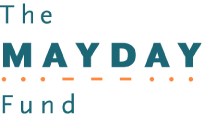Why was the Geriatric Pain website created?
Up to 80 percent of older persons living in long-term care facilities suffer from pain problems. Although aging contributes to the likelihood of pain conditions, effective assessment, and management can ensure good quality of life.
The Geriatric Pain website was initially created to provide nurses and other staff working in long-term care environments and informal caregivers with access to free evidence-based pain assessment tools, pain management strategies, and resources to help identify and manage pain in older adults, including quality improvement processes focused on pain management. However, the site is applicable to other geriatric care settings and use by the interdisciplinary team. The website is easy to access and user-friendly. It is organized into categories of emphasis, including pain assessment, pain management, education, quality improvement, and a new section on information for caregivers and patients.
Many of the tools available on the Geriatric Pain website are for nurses, staff, and administrators in nursing homes and long-term care facilities to help improve pain outcomes for residents, change organizational standards for pain outcomes, and save time identifying and evaluating quality tools. A newly added section in the Geriatric Pain website provides information specifically developed for informal caregivers, including family members, friends, or other non-paid individuals, who support older adults as they age.
Who developed and contributed to the Geriatric Pain website?
The Geriatric Pain website content was originally developed by representatives from five of the nine John A. Hartford Centers of Geriatric Nursing Excellence: The University of Iowa, Oregon Health & Science University, the University of Arkansas for Medical Sciences, the University of California at San Francisco and the University of Pennsylvania.
The following nurse leaders from across the country provided their expertise in the development and review of the Geriatric Pain website: Dr. Keela A. Herr, The University of Iowa; Dr. Debra Bakerjian, University of California; Dr. Kristen Swafford, Oregon Health & Science University; Dr. Patricia Bruckenthal, Stony Brook University; Deborah Conley, RN, MSN, Nebraska Methodist Hospital; Dr. Mary Ersek, University of Pennsylvania; Dr. Lois Miller, Oregon Health & Science University; Dr. Pao-Feng Tsai, University of Arkansas; Dr. Suzanne Prevost, University of Kentucky; Dr. Janet Specht, University of Iowa; Dr. Christine Kovach, University of Wisconsin-Milwaukee; Joan Teno, MD, Brown Medical School; Dr. Ann Horgas, University of Florida; Chris Forcucci, RN, Aging & In-Home Services of Northeast Indiana; Anne Marie Kelly, RN, Catholic Memorial Home; Barbara Phillips, DNS, West Palm Beach, Florida; and Sheria Robinson, RN, Hospice of Michigan.
Recent site revisions have been completed by the following nurse leaders:
- Editor: Keela A. Herr, PhD, RN, AGSF, GSAF, FAAN, The University of Iowa
- Associate Editor for Clinical Resources: Deborah Conley, MSN, APRN-CNS, GCNS-BC, FNGNA, CDP, Nebraska Methodist Health System
- Associate Editor for Caregiver and Older Adult Resources: Chris Forcucci, RN, Aging and In-Home Services of Northeast Indiana, Inc.
How was the Geriatric Pain website funded?
The website moved in 2017 from its original location at Sigma Theta Tau International, Inc. (STTI). GeriatricPain.org appreciates the early funding from the following sponsors: The MayDay Fund, Sigma Theta Tau International, Inc., The University of Iowa College of Nursing, and Golden Living. Additional funding from The MayDay Fund supported the transition to the website’s new home and funds from the Marilynn H. Bowers Dementia Education and Outreach Fund supported the development of the new section for caregivers.
|

|

|

|
|